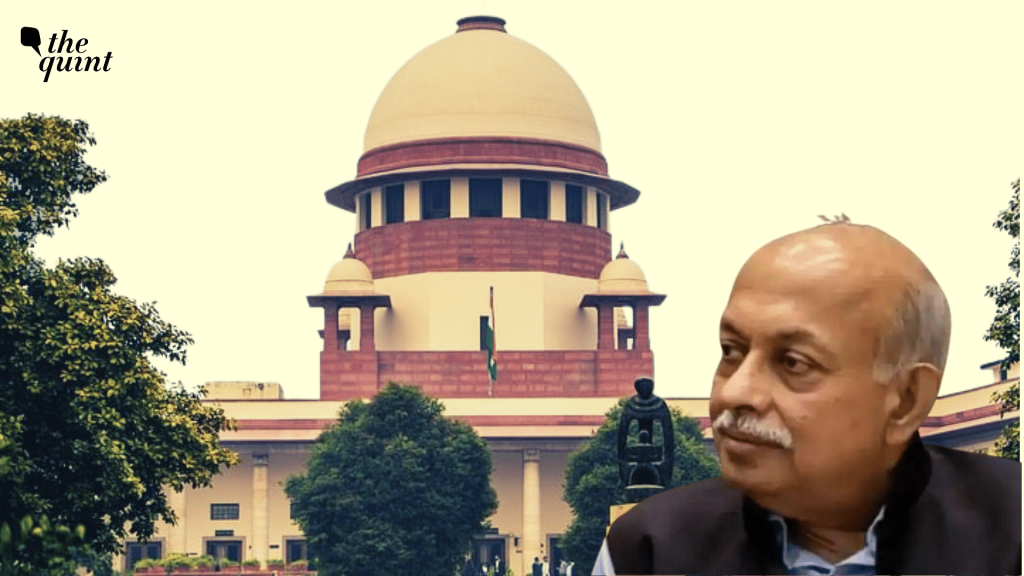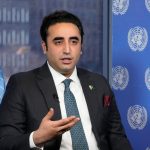By Dr. Gyan Pathak
Hounding the leaders of opposition, allegedly by Prime Minister Narendra Modi led Centre through Enforcement Directorate (ED), has reached an unprecedented level under directorship of Sanjay K Mishra, and hence his extension of service has been naturally opposed by the forces against abuse of power. However, extension of ED Chief Sanjay Kumar Mishra’s service remains a puzzle, and even the Supreme Court of India has to ask if he is ‘indispensable’?
The Centre had appointed Sanjay Kumar Mishra, the Indian Revenue Service officer of 1984 batch, as its director on November 19, 2018 for a fixed tenure of two years ending in November 2020. Right from his appointment, Modi government has been embroiled in political controversies for obvious reasons.
By the time his term was to expire in November 2020 on reaching the retirement age of 60 years, Centre retrospectively revised the appointment order and increased his tenure from two years to three years, which meant an indirect extension for one year up to November 2021.
Common Cause, a civil society organization then moved to Supreme Court of India challenging the validity of this retrospective revision and extension of Mishra’s tenure.
The division bench headed by Justice Nageswara Rao held that extensions could only be granted in ‘rare and exceptional cases’ for a short period of time, and ordered that no further extension should be granted.
The order was not of the liking of the Modi government, for where could the Centre have found a more ‘dependable’ person than S K Mishra, who remained most serviceable to the ruling establishment? It is why, as against the order of the Supreme Court not to grant further extension, the Centre brought two ordinances just three days before Mishra was to retire in November 2021. Those ordinances were brought to amend the Delhi Police Establishment Act, 1946, and the Central Vigilance Commission Act, 2003, which were tabled as a Bills in the Parliament of India, where by power of its majority, they were passed. According to the new provisions the tenure of both the CBI and ED directors could be extended by one year at a time till the completion of five years from the initial appointment. In November 2022, Mishra was given another extension until November 2023.
It should be worth mentioning that these amendments have also been challenged in the Supreme Court along with extension of Mishra’s services by at least eight separate public interest litigations which included petitions by Congress leaders Jaya Thakur, Randeep Singh Surjewala, TMC MP Mahua Moitra.
Petitioners have contended that the amendments give “unfettered discretion” to the Centre over the appointment and tenure of CBI and ED directors which compromises the independence of these investigating organisations.
As the political parties have alleged that the organisations are politically misused by the Modi government against the opposition leaders, the Centre has also submitted in the Supreme Court that the petitioners are motivated by oblique political interests since they have been filed by and on behalf of petitioners belonging to political parties whose leaders are currently being investigated on charges of money laundering. Centre alleges that the petitioners have filed the cases “to ensure that the ED does not and cannot discharge its duties fearlessly.”
There was a significant development in February 2023, when amicus curiae KV Vishwanathan told the Supreme Court bench that not only the third extension granted, but also the amendment to the Central Vigilance Commission Act permitting the central government to extend the tenure by one year at a time, up to a total of five years was illegal.
On Wednesday, May 3, 2023, the bench led by BR Gavai asked the Solicitor General Tushar Mehta representing the Centre, “Is there no other person in the organisation who can do his job? Can one person be so indispensable?”“According to you, there is no one else in ED who is competent? What will happen to the agency post 2023, when he does retire?” the bench, also comprising justices Vikram Nath and Sanjay Karol, said.
SG Mehta said that the extension was necessitated to ensure continuity in leadership ahead of India’s peer review by global terror financing watchdog, the Financial Action Task Force, which is expected to be held this year. He also submitted that it was not out of likeness for a particular individual but concerns over the performance of the country during the FATF review that required a person of Mishra’s experience with a “different level of skill” to remain at the helm.
SG Mehta further submitted, “It was not love for one particular individual but the Prevention of Money Laundering Act (PMLA) has trans-border implications. India is due for peer review by FATF which happens once in 10 years. A person interacting with FATF is best suited to deal with them. Sometimes, continuity is needed when you are dealing with world bodies. What is paramount was the performance of our country (in the review). It is not our case that he (Mishra) is indispensable.”
It also surprised all when Mehta said the decision to grant extension is not of the Union government but of the CVC which enjoys a high degree of independence in its functioning.
In brief, Modi government did whatever it wanted, even against the order of the Supreme Court of India is clear, at least in this particular matter. Executive asserting power against the powers of judiciary is a serious matter of concern. Moreover, several questions remained unanswered and only one of them is raised by the Supreme Court – is there no other competent officer? Other questions are why the Centre fears the peer review by international body? Has ED done something that is not defendable by any other officer? If CVC has given extension and Modi government has nothing to do, they why the Centre is defending itself? Why not CVC is defending its decision, if it is taken by them? There seems something else behind all the ED and CBI affair than that meets the eyes. (IPA Service)




 By Not Holding Bilateral Talks With Bilawal Bhutto, India Has Lost An Opportunity
By Not Holding Bilateral Talks With Bilawal Bhutto, India Has Lost An Opportunity 